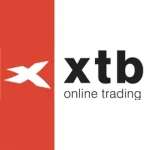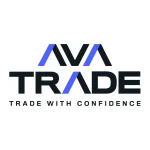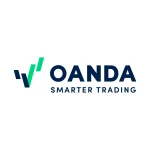Use filters to find your best broker
Short Overview of Online Trading in Canada
Thanks to mobile apps and online platforms, trading has become more accessible than ever. You can access global markets with ease. So, it doesn’t matter whether you are a beginner or an experienced trader. Everyone has a chance to grow their portfolios.
Online trading in Canada, like in the rest of the world, has seen significant growth over the past decade. Canadian traders and investors have a transparent and safe environment. They can trade all assets online, from stocks and bonds to commodities and cryptocurrencies.
There’s a common misleading statistic that “95% of all traders fail.” For starters, there’s no known research paper to back this up. Also, if such a huge number fails, then why are more and even more people joining?
To make money from trading, you need to approach it with the mindset of running a business. This means committing fully and treating it as a serious endeavour, not just a side hobby. In any successful business, four key areas drive profitability. They include reducing costs, increasing turnover, improving productivity, and boosting efficiency.
In trading, these principles apply directly. Reducing costs involves minimizing fees and commissions. Increasing turnover, on the other hand, means making smart trades that generate steady profits. Productivity and efficiency in trading come from diversifying your portfolio to manage risk and using the best trading tools. Above all, you must stay informed whether you’re trading for quick profits or making long-term investments. Understanding the fundamentals is crucial to avoid risks. Lucky you, we can assist you with that.

How to Start Trading in Canada
Canadian online trading platforms offer a variety of tools designed to simplify your effort. Real-time charts, in-depth market analysis, and educational resources make decisions much easier. Starting your trading journey in Canada is simple. All you need is the right knowledge and strategy. Here’s a quick step-by-step guide to help you get started:
Research and Choose a Broker
The first step is selecting a broker that fits your needs. Different brokers offer different assets (stocks, forex, cryptocurrencies), fee structures, and tools. Compare brokers based on your trading style and goals.
Open a Trading Account
Once you’ve chosen a broker, you should open a trading account. Most brokers require personal identification, such as a government-issued ID and proof of address.
Fund Your Account
After opening an account, we always advise our readers to exploit the demo account feature. It helps you learn how to trade and understand the platform better before committing any funds. But if you feel you are ready for the real deal, deposit funds. Most brokers accept various payment methods, including bank transfers, credit cards, and e-wallets. Ensure your method of choice is secure and fast.
Start Trading
Whether you’re a day trader or a long-term investor, having a clear trading strategy is essential. Decide your risk tolerance, asset preferences, and the time you can commit to monitoring the markets. Once your account is funded and you have a strategy in place, you can start executing trades. Our take has always been to go as small as you can as you align your strategy. The idea is to protect your capital and profits as you familiarize yourself with the platform and identify market trends and behaviour.
Monitor and Adjust Your Trades
Trading is a heavily involved exercise. You need to monitor the market and trends to know when to buy or sell. Market changes dictate your moves. If you don’t follow the market, your results could deviate from the norm. You track your assets’ performance to detect any market changes and spring into action before they cause too much damage.
How We Can Help
At BrokerRaters, we help beginners and experienced traders stay ahead. But how exactly do we do this? We help you choose the best brokers, identify the best trading tools, and provide you with the best strategies. If you are looking for ways to enhance your trading skillset, pour yourself over different content and improve your knowledge. This platform has an array of resources to ensure you make informed decisions on your trading and investing journey. You’ll be able to do the following:
Compare Brokers
Our Compare Brokers is a one-of-a-kind tool that allows you to compare various Canadian brokers side by side. We compare them based on different parameters like fees, trading platforms, and customer service. You can never get it wrong with this tool. In no time, you’ll find the best broker that suits your trading style.
Learn
We provide in-depth guides on trading, from how to start trading and investing to strategies to use in Canada. Your skill level doesn’t matter. Our experts share their insights, serving both new traders and experienced traders looking to expand their knowledge. We are not limited to specific assets. We provide holistic guides that cover everything from the basics to advanced strategies.
Identify TOP Brokers by Categories
We understand that the best broker for trading stocks might not be ideal for mutual funds or derivatives. That’s why, each year, we recognize the top trading platforms and brokers in various categories across Canada. Our awards are based on user feedback, expert reviews, and thorough evaluations, helping you find a trustworthy broker. So, if you are looking for the best broker for a specific payment method, like PayPal or other features, our awards make it easier to identify the right option. With so many brokers and platforms available, finding the best one for your investment style and needs is crucial. Explore our broker awards to help you choose the right broker.
Online Investing in Canada
Online investing in Canada provides endless opportunities to grow your wealth at your own pace. With the ability to manage your investments online, you have full control.
Online investing platforms offer many financial products, each tailored to different risk levels. You can easily diversify your portfolios. You can choose from mutual funds and ETFs to stocks and bonds.
The new trend online is the rise of intelligent systems. We now have Robo-advisors and automated portfolio management. Using these intuitive tools, you can manage risk and maximize your returns, making investing simple and even more exciting. Your experience or education level doesn’t matter. You can take a hands-off approach but still do just fine.

How to Start Investing in Canada
As we alluded to earlier, trading or investing is like a business. And you know, before starting a business, what do you do? You research and learn more about it. That is the same with investment. If you are going to put your money in, you must trust it will eventually pay off, right?
Investing is simple, but deciding on what to invest in depends on four things – your financial situation, goals, time, and risk tolerance. You could be saving for retirement, a home, or another major milestone. But how long do you have to generate the needed funds? Are you seeking short, medium, or long-term goals? Can you handle high-risk investments that promise high returns?
Once you understand those four elements, your investments will align with your financial future. Afterwards, the rest will fall into place. So, in simple steps, do the following and you’ll be well on your way to building a strong investment foundation in Canada:
Identify Your Financial Goals
Answer the question, why are you investing? Your purpose for investment will decide whether you go for stocks, mutual funds, or bonds. Remember, an investment shouldn’t be your emergency fund. So, have clear goals to shape your investment approach clearly.
Choose the Right Investment Platform
You can’t invest in some securities without a licensed Canadian broker or investment platform. Choose a platform that suits your involvement level. A self-directed brokerage account offers more control. You can also use a Robo-advisor that includes automated investment options.
Open an Account
Select an investment account. Some common options in Canada include a Tax-Free Savings Account (TFSA) or a Registered Retirement Savings Plan (RRSP). These are best for retirement investments as they benefit from tax advantages.
Fund Your Account
It’s like every platform supports simple deposit methods, like credit/debit cards and electronic transfers. But we now also have contemporary banking options like Cryptocurrencies. When choosing a broker, you settle for the one that supports your best depositing method.
Diversify Your Portfolio
For long-term success, diversification is crucial. Spread your investments across various industries and asset classes like stocks, bonds, and ETFs to balance risk. Also, don’t limit your investment locally. Cross-over and invest in Chinese stocks, American companies, and even emerging markets. You spread your investment such that an event in one economy doesn’t wipe out your investment
Monitor and Adjust Your Investments
Regularly review your portfolio to ensure it aligns with your goals and market trends. Adjust as needed to stay on track.
Guide to Mobile Trading/Investing Platforms & Apps
Mobile trading and investing apps have transformed the way Canadians manage their portfolios. These apps offer the convenience of trading or investing on the go. They give access to real-time market data, portfolio management tools, and educational resources.
How Do We Select the Best Trading Platforms?
We consider several key factors to ensure you have a smooth and secure experience. When evaluating mobile trading and investing platforms, we look at:
Safety: Security is our top priority. All the platforms recommended here adhere to Canadian regulatory standards. First, they have a green light from the Financial Consumer Agency of Canada (FCAC) that protects financial consumers. But we also ensure the platforms for safety and we list those that advanced encryption to protect your data.
Payment Methods: Different platforms offer various deposit and withdrawal options. We evaluate how user-friendly, fast, and secure these methods are so you can fund your account and access your funds easily.
User Reviews: Apart from our own opinions, we also listen to what other users say. We rely on real user feedback from TrustPilot, the App Store, and the Play Store to provide insights into each platform’s user experience. User reviews help highlight customer service quality, ease of use, and other important features.
Canadian Regulations and Restrictions
Canada has strict regulations in place to protect investors and traders. The Investment Industry Regulatory Organization of Canada (IIROC) oversees online brokers and ensures that they follow Canadian laws. They work hand in hand with FCAC to safeguard investor funds.
Additionally, Canadian brokers must comply with provincial regulatory bodies. Some common ones include the Ontario Securities Commission (OSC) and the British Columbia Securities Commission (BCSC). These agencies ensure that brokers operate fairly and in the best interest of their clients.
While Canadians are free to invest and trade globally, certain assets (like cryptocurrencies) may be restricted. Always ensure that the platform you use complies with Canadian laws and regulations.
FAQs
Yes. Canadian residents can trade a wide range of assets, such as stocks, bonds, commodities, and currencies. But for your safety, use a regulated broker that complies with Canadian financial laws.
Yes. Canadians can invest in various financial instruments.
Investment income is subject to taxation. Capital gains, dividends, and interest earned from investments can be taxed at different rates. But, registered accounts like TFSAs and RRSPs offer tax advantages. A TFSA allows tax-free growth, while an RRSP defers taxes until withdrawal.
Trading carries risks, including market volatility, liquidity risk, and potential financial loss. It’s crucial to have a solid understanding of the market and use risk management strategies to protect your investments.
Choosing the right broker depends on your trading style and needs. Look for brokers with low fees, reliable customer support, strong security, and a user-friendly platform. Our Compare Brokers tool can help you find the right one.
The main risks include market fluctuations, economic changes, and specific asset risks. To mitigate some of these risks, conduct thorough research and diversify your portfolio.
No. You cannot open an investment account on your own. But your parents or guardians can open a custodial account on your behalf, and you can start investing with their guidance.






